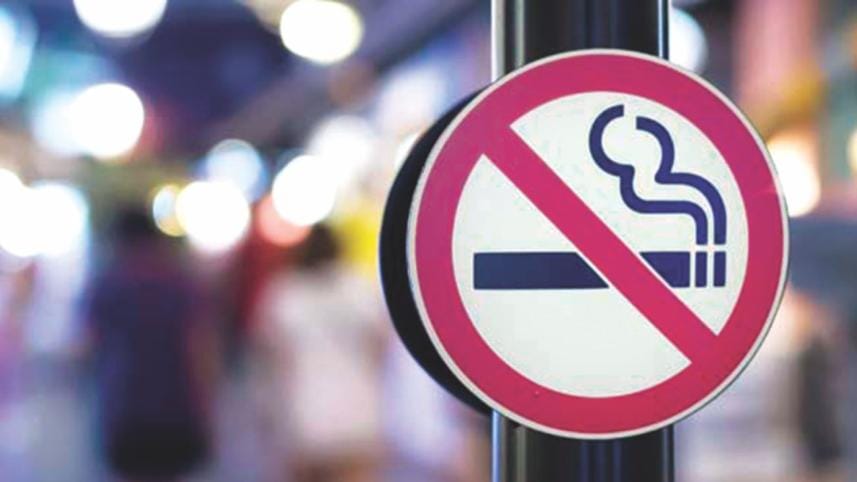Tk 11,000 crore can be generated from proposed tobacco tax: economists

Economists and activists opined that Tk 11,000 crore in additional revenues could be raised from the tobacco sector if the proposed tax and price measures from the Ministry of Health and Family Welfare and anti-tobacco activists were adopted.
Such revenue can become a source of fund for government allotment and stimulus packages, they said. This will also reduce the use of tobacco products in the country amid the coronavirus outbreak.
Economists, journalists and anti-tobacco activists vented their frustration during a budget reaction event today, hosted virtually. It was jointly organised by PROGGA (Knowledge for Progress) and Anti-Tobacco Media Alliance (ATMA), according to a press release.
According to the speakers, the tobacco companies will profit tremendously since the supplementary duties on cigarettes have remained almost unchanged for the fourth consecutive year.
Eminent economist and convener of the National Anti-Tobacco Platform, Dr Qazi Kholiquzzaman Ahmad said they have repeatedly demanded increased prices and taxes for tobacco products to safeguard people but sadly it is far from being implemented.
Former Deputy Governor of Bangladesh Bank Khondkar Ibrahim Khaled said that it is not healthy for an economy to rely too much on the banking sector to fund the national budget.
"The government has a golden opportunity to generate additional revenue from internal sources. As we have seen here today, it is possible to generate as much as Tk 11,000 crore from proper time-fitting taxation on tobacco products, which can be a tremendous source for funding the national budget," he said.
Journalist Monjurul Ahsan Bulbul said that the prime minister has set the target to achieve a tobacco-free Bangladesh within 2040. But the policymakers responsible for implementing that target show a lack of interest.
Anti-tobacco activists said that the multi-tier pricing of cigarettes has been kept untouched, thus continuing to provide consumers with the opportunity to switch to cheaper brands and companies with opportunities to evade taxes. This microscopic increase in prices of bidi and gul will have no impact on reducing the use of these products among the poor.
The highest extent of hike in cigarette prices in the proposed budget is 5.4 percent which is very negligible considering the fact that during the same time the National Income Per Capita (Nominal) has increased by 11.6 percent, they said.
Proposals were presented urging the government to introduce specific taxes and adopting effective tobacco tax and price measures and imposing a three percent surcharge on retail prices of all tobacco products.
Senior Research Fellow of the Bangladesh Institute of Development Studies (BIDS) and economist Dr Naznin Ahmed; Professor at the Department of Economics of Dhaka University, Dr Rumana Huque; and Research Director of Bangladesh Institute of International and Strategic Studies (BIISS) Dr Mahfuz Kabir also spoke at the event.



 For all latest news, follow The Daily Star's Google News channel.
For all latest news, follow The Daily Star's Google News channel.
Comments